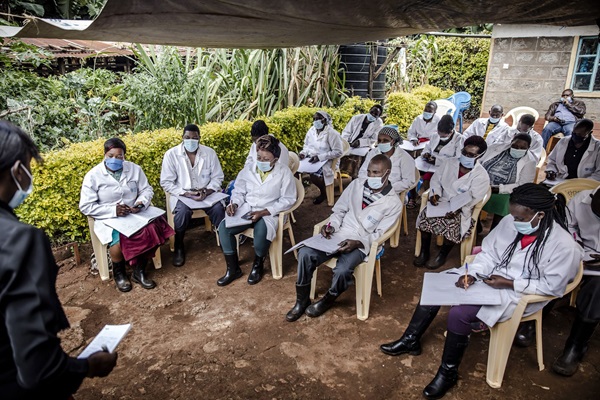
Rome - The G20 must continue its efforts to achieve financing levels that enable long-term strengthening of health systems. Together with transformed agri-foods systems that are more sustainable, this can make the world more resilient against future pandemics and achieve better production, better nutrition, a better environment and a better life for all, QU Dongyu, Director-General of the Food and Agriculture Organization (FAO), said at a G20 high-level meeting on Friday.
“Financing for prevention, preparedness and response is urgently needed to be more sufficient, better predictable and better coordinated among all key stakeholders,” he said via video in remarks to the G20 Joint Finance and Health Ministers’ Meeting.
“The pandemic has confirmed the important link between the food, health and finance sectors,” Qu said, noting that the COVID-19 emergency has pushed the number of hungry people in the world to more than 800 million and critically compromised global efforts to achieve the Sustainable Development Goals – including Zero Hunger – by 2030.
He called for significant, responsible, low-cost, high-impact investments targeting key areas including integrated data and surveillance, laboratory and extension capacities, expertise, access to medicines and skills building.
“We need to all work more, better and coherently together to feed the world, achieve pandemic control and ensure health for all, including the planet,” the Director-General said.
One Health
Key to addressing global health threats is to ensure financing and implementation of the One Health approach across the human, animal and environmental nexus, Qu said.
The combined mandates of FAO, the World Health Organization (WHO) and the World Organisation for Animal Health (OIE) - the Tripartite - together with the United Nations Environment Programme (UNEP) and other key partners, are vital for effective and efficient multi-sectoral collective actions.
FAO is currently the Tripartite Chair and leading the development of a Global Action Plan for One Health.
The goal is to strengthen health systems worldwide and galvanize collective action to transform agri-food systems. “Health security cannot be achieved without more efficient, more resilient, more inclusive and more sustainable agri-food systems,” Qu stressed.
FAO is also implementing a comprehensive and holistic COVID-19 Response and Recovery Programme to mitigate the impacts of the pandemic, while bolstering the long-term resilience of agri-food systems and livelihoods to build back better, especially in rural areas, the Director-General said. That is also one of the key objectives of the Food Coalition, established by FAO and the Italian Government, current holder of the G20 Presidency.